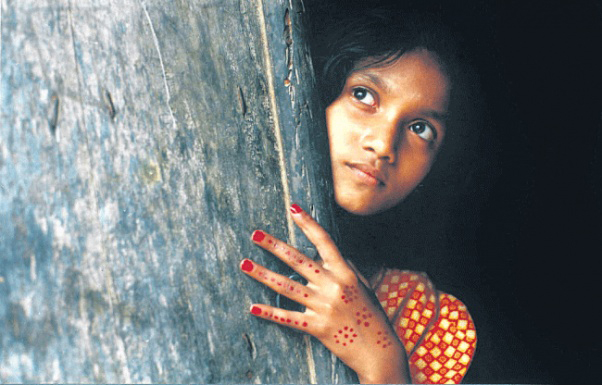If you sit down to drink a cup of afternoon tea with a group of women in a village in Tarai, a topic of conversation that inevitably comes up is the elopement of so-and-so’s daughter. Ladki bhaig gelai (‘the girl ran away’), the story goes, and details about the wayward woman’s ‘bad character,’ ungratefulness to her parents and wanton sexuality are gratuitously discussed, framed as a cautionary tale for other girls in the village who, it is feared, may follow a similar path.
The choice to marry somebody without parental approval is understood to be a heinous crime, an unforgivable transgression of patriarchal authority, and young girls who ‘run away’, often with a boy of either a ‘lower’ caste or a different religion, are disowned, unwelcome for the rest of their lives in their natal homes.
Elopement is often a bad situation for everyone involved—the family of the girl who ‘runs away’ feels pressured (partly by the weight of tradition and societal judgment, partly by pure stubbornness) to sever ties with the ‘fallen’ daughter, while the daughter is forced to resign herself to the fact that the family she grew up in has ceased to be hers because of her ‘sinful choice’. Why, then, does virtually every middle-class family in a village have at least one story of a daughter who eloped that they no longer speak to? Why, despite it being cast as a catastrophic decision all her life, would a young girl completely give up everything familiar to live with an almost stranger, sacrificing all her existing social support networks?
It’s complicated
For the longest time, I would have believed that the answer was young love, but in the violent patriarchy that colors the lives and choices of most women living in villages in Tarai, the answer is more complicated than that.
Complete and total acquiescence to the wishes of elders, particularly male ones, is seen as the most virtuous characteristic a girl could have, and many young girls in Tarai grow up in suffocating environments where independence is actively discouraged.
Characteristics of assertiveness, feistiness, or even the slightest hint of an argumentative streak are beaten out of young girls as soon as they emerge. This is not to say that many of these girls don’t grow up to be feisty and assertive anyway, but the view that is constantly enforced and reinforced is one that tells girls to shut up and do what male authority figures in their lives tell them to do.
The norms that one is expected to adhere to are stifling, to say the least, and with adolescence, when the threat of female sexuality becomes imminent, familial environments become even more claustrophobic. Girls in middle-school will tell stories of being slapped and locked in their rooms after somebody in their family found out that they were texting a boy, and the consequences of having a boyfriend are sometimes apocalyptic, leading to family members forcing a marriage with somebody else as soon as possible lest the ‘reputation’ of the ‘khandan’ be threatened.
In this environment, where the agency is extremely limited in all facets of life, but especially heterosociality and every possibility of a romance that surrounds it, the lure of running away to escape familial pressure is undeniable. Girls as young as 11 or 12 imagine that if they manage to escape the confines of their domineering family, they will lead freer, happier lives, and not be forced to suppress all their desires for the sake of maintaining the image of an obedient, ‘pure’, a do-gooding daughter.
While the instinct to elope appears to be, in some ways, a feminist choice—a rebellion against male authority figures and their antiquated ideas of honor and shame, it is a choice that often ends up putting young girls in a different kind of patriarchal cage. The logic of elopement at a very young age seems to be that a male lover can somehow ‘save’ you from overbearing patriarchs, and life after marriage with a boy you love is going to be what filmy dreams are made of.
More often than not, this couldn’t be further from the truth. While, of course, some young couples that elope manage to overcome all adversity to maintain long, healthy, loving marriages, the strain that is placed on one single ‘runaway’ relationship can end up making it unsustainable and potentially harmful to the young woman involved. Young girls who elope often do not have anybody to turn to besides their husbands that they have sacrificed their whole lives to be with, and if they turn out to be abusive, adulterous, or even just plain bored, there is no option but to stay in a terrible marriage because opportunities for getting out are extremely limited. The power dynamic in a marriage where the wife has nobody to rely on besides her husband is inherently skewed to a dangerous degree.

Three girls missing from Baitadi

Humans with thoughts
The economic pressure that young couples are under is also enormous, and the fact that many couples elope at ages much younger than 18 means that they often don’t have the means to sustain themselves, let alone a child if they happen to have one.
To me, it seems clear that ideally, an elopement would be a less appealing prospect for young girls, and middle-schoolers would be able to complete their education (or become at least somewhat self-sufficient) before making the decision to marry somebody, or not get married at all. Creating space for this to happen means that families need to learn to recognize their daughters as individuals and humans with thoughts, hopes, dreams, desires, and potentials of their own, rather than putting them on pedestals as emblems of purity and treating them horrifically if they are unable to meet the impossible standards of what ideal femininity is expected to be.
Unfortunately, it appears that many adults are moving in a completely different direction, responding to the ‘epidemic’ of girls ‘running away’ by suppressing their daughters even more. I talked to young girls who talked about how their every move was being closely monitored by male relatives who wanted to make sure that they weren’t becoming chhada (‘loose women’), and how instead of letting them finish school, they were being forced to get married right away so that there would be no opportunities for elopement.
As a society, we can, and we need to, do better than this. Young girls need to be taught that they are capable of ‘saving’ themselves, and don’t need fathers and uncles and brothers and husbands to dictate every choice they make. What we need to work towards is reimagining marriage as a consensual union between two mature adults, and not a punishment to be inflicted on disobedient children or the number of young people eloping to escape the harsh realities of domestic repression is only going to grow.
The author is pursuing a degree in anthropology and religion at Swarthmore College in Pennsylvania









-1200x560_20220317144436.jpg)



























